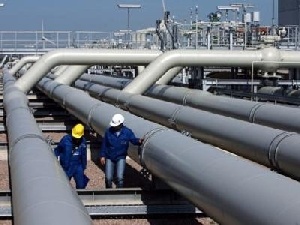Business News of Tuesday, 13 May 2025
Source: www.ghanawebbers.com
NPP government left behind GH¢70b energy sector debt – Mahama
President John Mahama Addresses Energy Sector Debt
President John Mahama stated that the New Patriotic Party (NPP) government left a GH¢70 billion debt in the energy sector. This figure was reported as of December 2024.
During his State of the Nation address on February 27, 2025, he said, “Despite collecting over GH¢45 billion in Energy Sector Levies (ESLA), the NPP administration has burdened Ghanaians with this debt.”
He expressed concern about state-owned enterprises (SOEs) in the energy sector. Many are struggling to survive and may fail without urgent help.
The president noted that financial issues in the energy sector hinder consistent and affordable electricity. He warned that these problems threaten the economy as a whole.
He mentioned that critical maintenance activities were postponed from 2024 to 2025. This included scheduled work on the West African Gas Pipeline (WAPCO) without backup fuel supply plans.
“My administration has mobilized resources for emergency fuel supplies,” he said. This ensures electricity generation continues despite challenges.
The pigging exercise is expected to be completed in early March. Once gas flows from Nigeria resume, improvements in power supply are anticipated.
President Mahama assured Ghanaians of his government's commitment to restoring stability. He directed reforms including a single revenue collection account and adherence to the Cash Waterfall Mechanism (CWM).
The Minister for Energy has formed an advisory committee for private sector involvement in metering and billing. This aims to improve revenue collection efficiency and reduce losses threatening state-owned utilities.
He highlighted a successful pilot partnership between Electricity Company of Ghana (ECG) and Enclave Power Limited. ECG supplies bulk power while Enclave Power manages metering and billing with high revenue collection rates.
Reducing commercial and technical losses will lead to lower tariffs for consumers. The goal is also to achieve 100% gas utilization for power production, eliminating crude oil use.
By Emmanuel K Dogbevi











